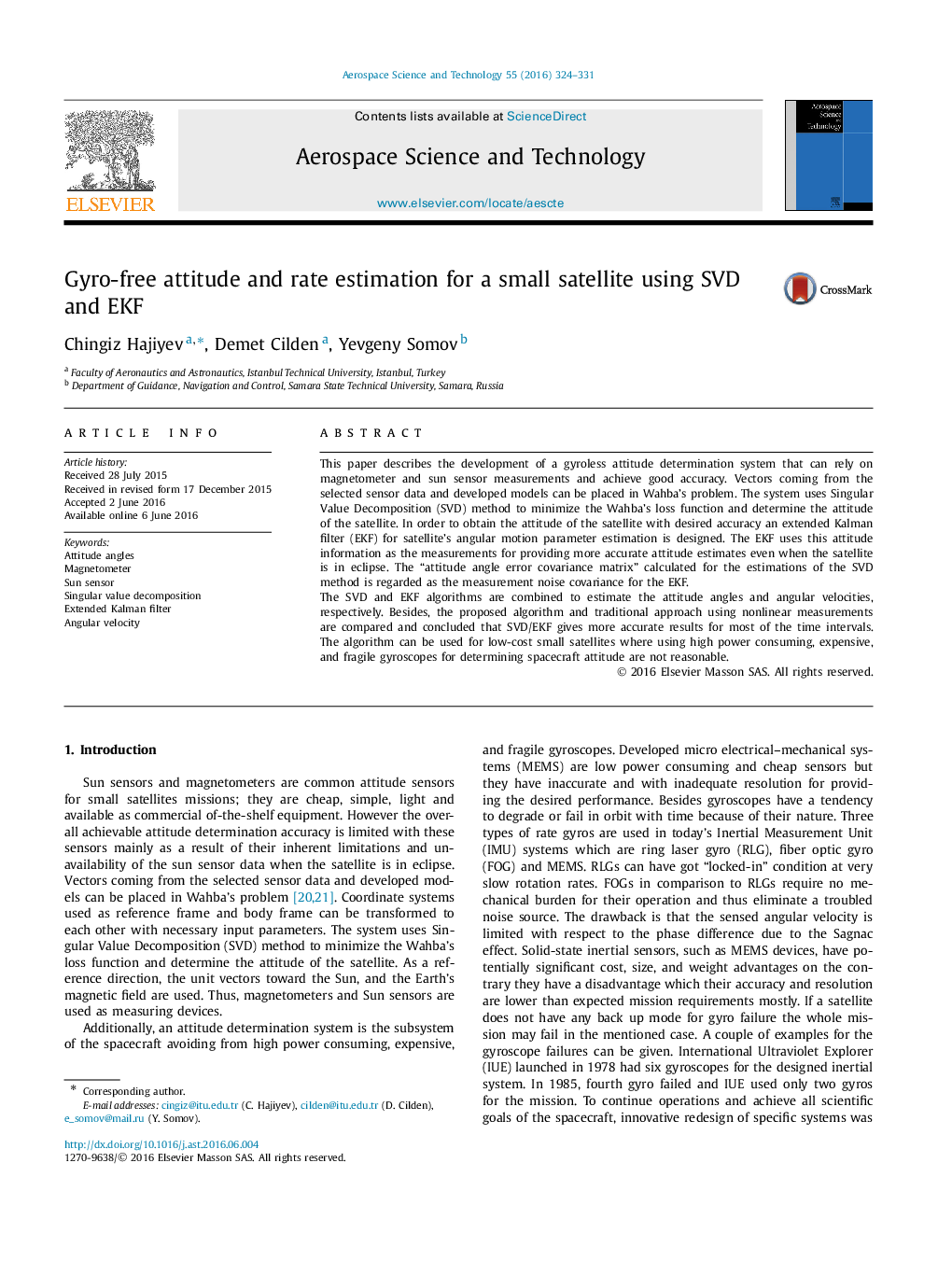| Article ID | Journal | Published Year | Pages | File Type |
|---|---|---|---|---|
| 1717564 | Aerospace Science and Technology | 2016 | 8 Pages |
This paper describes the development of a gyroless attitude determination system that can rely on magnetometer and sun sensor measurements and achieve good accuracy. Vectors coming from the selected sensor data and developed models can be placed in Wahba's problem. The system uses Singular Value Decomposition (SVD) method to minimize the Wahba's loss function and determine the attitude of the satellite. In order to obtain the attitude of the satellite with desired accuracy an extended Kalman filter (EKF) for satellite's angular motion parameter estimation is designed. The EKF uses this attitude information as the measurements for providing more accurate attitude estimates even when the satellite is in eclipse. The “attitude angle error covariance matrix” calculated for the estimations of the SVD method is regarded as the measurement noise covariance for the EKF.The SVD and EKF algorithms are combined to estimate the attitude angles and angular velocities, respectively. Besides, the proposed algorithm and traditional approach using nonlinear measurements are compared and concluded that SVD/EKF gives more accurate results for most of the time intervals. The algorithm can be used for low-cost small satellites where using high power consuming, expensive, and fragile gyroscopes for determining spacecraft attitude are not reasonable.
